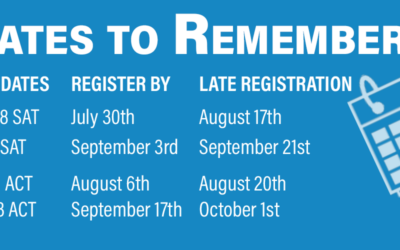Happy New Year everyone! For those of you who made a new year’s resolutions to do better on your SAT or ACT, I’m going to cover a few effective steps that you can take right now to get yourself prepared for your upcoming test.
- Do well in your math class: Yup. This first part doesn’t require a whole lot of extra work aside from maintaining your grades in math. One of the biggest weaknesses students have on the Math portion of the SAT is their inability to remember basic Algebra I and Algebra II concepts. If the average student had stronger foundations in Algebra I and Algebra II then the majority of students would have a competitive Math SAT score.
- Brush up on grammar: Basic grammar accounts for almost 75% of the Writing section of the SAT. Basic concepts like subject verb agreement, pronoun usage, and parallel structure appear in every Writing SAT.
- Read. One tried and true recommendation that can help students improve their reading is simply more reading. It does not have to always be practice SAT readings; reading anything helps. This is an incredibly passive task, however, and reading more effectively takes time and patience to build. Spending 15 minutes of continuous reading per day has been statistically shown to help improve a students comprehension ability passed the national average. I also know how difficult this task is considering how busy today’s students are, but the payoff is worth it.
If students do no other prep for their standardized tests, then these basic things will help provide a stable foundation for an improved score.




